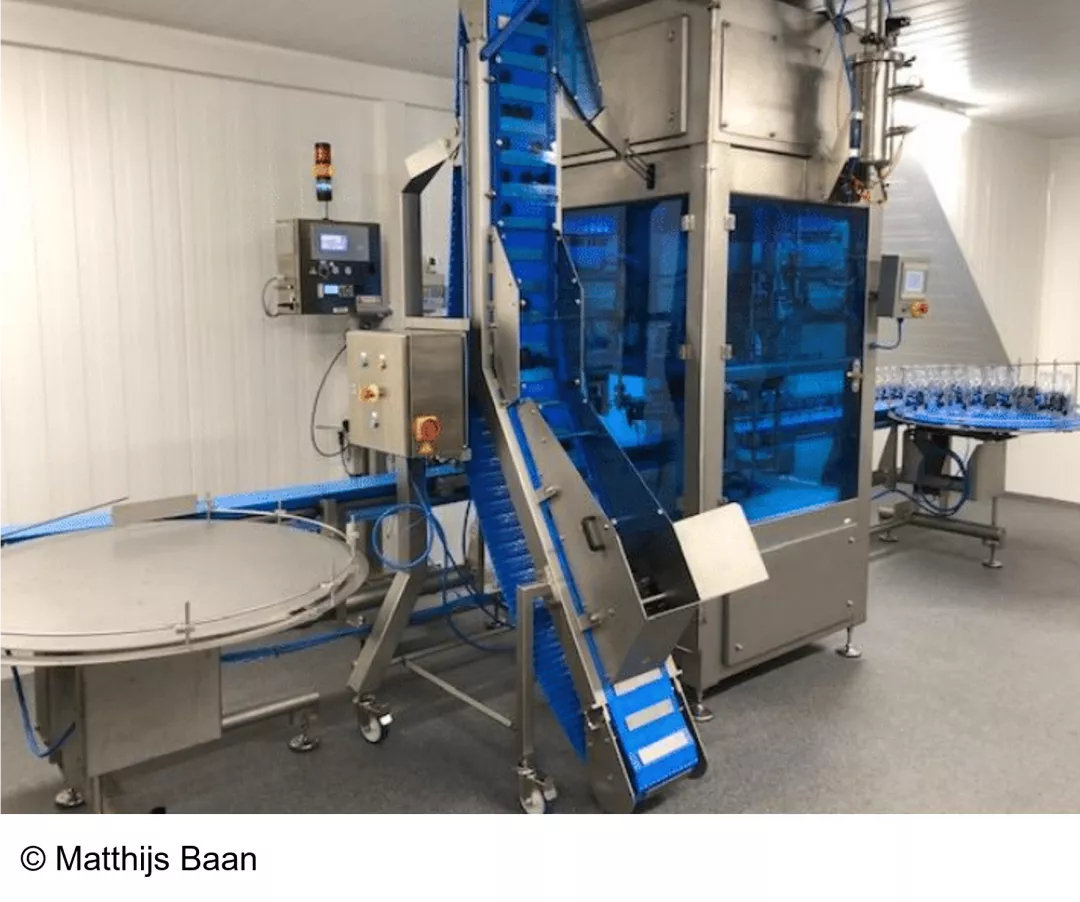General information
RDP Priority
- P2. Competitiveness
RDP Focus Area
- 2A: Farm’s performance, restructuring & modernisation
RDP Measure
- M04: Investments in physical assets
Summary
A Dutch dairy farmer invested in a new and innovative technology to make it possible to package the milk of each of his cows individually, directly after milking. This made it possible to deliver extremely fresh milk directly to local consumers through a short supply chain. CAP investment support was used to reconfigure the production room as well as to install and test the new milking and bottling technology.
Results
- Besides the economic benefits, the relationship between farmer and consumers was strengthened. Currently, 70% of the milk produced at the farm is sold directly to customers.
- The farm processes milk 22.5 hours a day, seven days a week.
Promoter
Hazendonkhoeve
Funding
Total budget 322 138.60 (EUR)
EAFRD 56 000.00 (EUR)
National/Regional 56 000.00 (EUR)
Private/own funds 210 138.60 (EUR)
Ressources
Documents
Context
Dutch dairy farms produce milk using, on average, one hundred cows per farm. The milk is sold to factories which process it into different products and distribute it to supermarkets or abroad. This process is efficient and well-organised, but the relationship between producers and consumers can be weak or even non-existent. This system has ultimately weakened the position of dairy farmers in the value chain.
The dairy farmer Matthijs Baan was dissatisfied with this system of milk collection, distribution and consumption and wanted something better. When he participated in an EU-funded Master Class on Short-Supply Chains, he came into contact with developers of milk processing technologies. These interactions gave him the idea of setting up his own small scale milk processing unit so that his milk could be processed and bottled on site. In his novel business concept, the milk of each cow would be bottled individually and labelled to indicate the cow that produced it.
Objectives
The aim of this project was to develop an innovative short supply chain for milk production and distribution in order to reduce the distance between producers and consumers.
Activities
The stages of development of this new process involved:
Development and design of a new production line in partnership with a developer of milk processing technologies and in accordance with food safety regulations. The business model and organisational structure of the new venture were devised.
Pilot phase: the farmer tested the production costs and launched production based on the minimum viable product. During this phase, CAP funds were used to co-finance the set-up of the new production line on the farm. This involved modernising the room where the milk is pasteurised and bottled: building walls, placing and tiling the floor, placing infrastructure for water, electricity and drainage. In order to connect the milk processor with the milking robot, a new piece of software was developed which tags the bottles of milk to indicate the cow that produced it.
Implementation and fine-tuning phase: the new production line was calibrated and Matthijs started selling his milk in a local supermarket on a small scale.
Scaling up phase: a campaign of direct marketing led to an increase in the number of customers and the demand for milk.
Main results
-
Currently, 70% of the milk produced at the farm is sold directly to customers.
-
Besides the economic benefits, the relationship between farmer and consumers has been strengthened.
-
The farm processes milk 22.5 hours a day, seven days a week.
-
Milk bottles are labelled according to the cow’s name.
-
The required daily labour input to operate the new process is less than 180 minutes.
-
The processing of the milk is fully automated and thus it is fault-free.
Key lessons and recommendations
-
Small dairies can be very effective in processing, distributing and creating value for famers. Setting up a short supply chain that benefits farmers can open new ways and options. However, it is challenging, comes with risks and requires significant investment.
-
Customer loyalty can be built on novel schemes, allowing consumers choice to select the cow which provides their milk.
-
Creating a short supply chain changes farmers’ relationship with their consumers and clients. However, when farmers produce very large volumes of milk, they may still need to deliver part of it either to a factory or to supermarkets.
